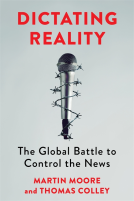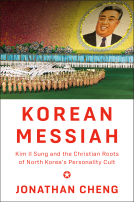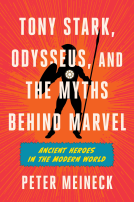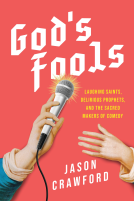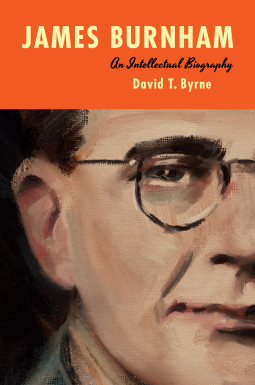
James Burnham
An Intellectual Biography
by David T. Byrne
This title was previously available on NetGalley and is now archived.
Send NetGalley books directly to your Kindle or Kindle app
1
To read on a Kindle or Kindle app, please add kindle@netgalley.com as an approved email address to receive files in your Amazon account. Click here for step-by-step instructions.
2
Also find your Kindle email address within your Amazon account, and enter it here.
Pub Date Mar 15 2025 | Archive Date Mar 01 2025
Cornell University Press | Northern Illinois University Press
Talking about this book? Use #JamesBurnham #NetGalley. More hashtag tips!
Description
In this intellectual biography of one of the most important political thinkers of the twentieth century, David T. Byrne reveals the fascinating life of James Burnham.
Beginning his intellectual career as a disciple of Leon Trotsky, Burnham preached socialist revolution to the American working classes during the Great Depression. He split with Trotsky over the nature of the USSR in 1940. Attempting to explain the world that was emerging in the early days of WWII, Burnham penned one of the most successful political works of the early 1940s titled The Managerial Revolution. This dystopian treatise predicted collectivization and the rule by bland managers and bureaucrats. Burnham's next book, The Machiavellians, argued that political elites only seek to obtain and maintain power, and democracy is best achieved by resisting them.
After World War II, Burnham became one of America's foremost anticommunists. His The Struggle for the World and The Coming Defeat of Communism remain two of the most important books of the early Cold War era. Rejecting Kennan's policy of containment, Burnham demanded an aggressive foreign policy against the Soviet Union. Along with William F. Buckley, Burnham helped found National Review magazine in 1955 where he expressed his political views for over two decades.
As Byrne shows in James Burnham, the political theorist's influence ranged from George Orwell to Ronald Reagan to Donald Trump. Burnham's ideas about the elite and power remain part of American political discourse and, perhaps now, have more relevance than ever before.
Advance Praise
"The topic of this valuable book is of essential importance to US diplomatic and intellectual history. David T. Byrne explains patterns in American foreign policy from FDR to Donald Trump, contributing to the literature on anticommunism and neoconservatism." -Michael Kimmage, author of Collisions
"This lucidly written book advances an original argument about James Burnham's influence on the American right. It will become a handy primer for scholars and others looking for more information on Burnham." -Jennifer Burns, author of Milton Friedman
Marketing Plan
- Author to seek excerpts in major political newspapers and magazines, such as The National Review and The Washington Post
- More to come!
- Author to seek excerpts in major political newspapers and magazines, such as The National Review and The Washington Post
- More to come!
Available Editions
| EDITION | Hardcover |
| ISBN | 9781501780042 |
| PRICE | $33.95 (USD) |
| PAGES | 252 |
Available on NetGalley
Average rating from 3 members
Featured Reviews
David T. Bynre has assembled the first academic biography of James Burnham, a whip-smart and acerbic 20th century political mind. The main argument is Burnham was an important intellectual forefather of two distinct traditions of thought on the contemporary political right, neo-conservatism and paleo-conservatism. Byrne chronologically walks readers through Burnham's intellectual trajectory from formal logician/bourgeois academic to Marxist intellectual (specifically friendly to Trotskyism) to elite theorist to anti-communist Cold War pragmatist/realist to a devastating critic of liberalism. Byrne provides close readings of Burnham's major works (The Managerial Revolution, The Machiavellians, The Struggle for the World, The Coming Defeat of Communism, The Web of Subversion, The Suicide of the West) while following this trajectory. Byrne also interjects with occasional connections to modern echoes of Burnham's thought on the Right. There are two major inflection points in Burnham's political journey: 1) the obvious failures of Soviet communism to provide material prosperity and political equality. 2) liberal hand-wringing during Joseph McCarthy's anti-communist crusades. These are mapped persuasively but sometimes Byrne's subject's deeper motivations remains enigmatic. Additionally, I think in some ways the author oversells Burnham's political evolution. From what I see in the analysis is that Burnham always remained clear-eyed and rational about the nature and operation of political power. The bigger shift was a transition from an intellectual to a live player in the political arena. He became sufficiently activated by concerns about communism and domestic weakness concerning strategies for defeating communism and that induced him to act more directly for his interests.
In many ways, it is infuriating that Burnham hasn't already been subject to extensive study in the fields of political theory and intellectual history. This work makes it implicitly clear that Burnham has been systematically overlooked by intellectual histories especially those that analyze or celebrate figures like George Orwell, Arthur Koestler, Sidney Hook, John Dewey, Arthur M. Schlesinger, John Kenneth Galbraith, George Kennan. I hope this is just a first step and that the academy will welcome the study of Burnham. In my view, The Machiavellians is Burnham's most important accomplishment as it re-animated an important body of political thought, elite theory, that does away with the obvious failures and moral positioning of Marxism. Today, there are many live players working to sustain and explain Burnham's insights (e.g. Marc Andreessen), but this has mostly been an outside game narrowcast to a small subset of elite aspirants. The world should have a greater awareness of Burnham and his ideas.
I strongly recommend this work.
 Kevin H, Reviewer
Kevin H, Reviewer
First thoughts on Goodreads:
I actually wrote my Master’s thesis on James Burnham, George Kennan and Walter Lippmann and their arguments over containment in the early Cold War. But it has been some time since I have gone back and thought and read about this time and its history. I was excited to get an advanced readers copy of this intellectual biography and re-enter the world of Burnham.
I enjoyed the book and it is thought provoking to think of both neoconservatism and paleo conservatism as legacies of Burnham. Anti-communism was the element that held the conservative coalition together and once the Soviet Union was gone the two sides (Neo and Paleo) went in very different directions.
And anti-communism seems to be the dominant theme of Burnham’s thinking and writing once he broke with Marxism. The other through-line seems to be the need for action and for seeing the world as it is rather than how one wants it to be. Burnham was seemingly a materialist, a realist and a positivist. Which left me wondering how his role at National Review played out. He loved to argue and engaging in the battle of ideas which certainly made sense at NR. However, he was not traditionally conservative in economics or faith, so he was somewhat unique.
One could argue that Burnham finally saw his influence pay off with the election of Ronald Reagan and the end of the Cold War. But the pessimistic side of Burnham seemed to think America, and the West, were losing right up until they weren’t. Did Reagan finally push the Soviets by aggressive action and the arms race to the point they could no longer function? Or did containment finally work; thanks in part to the prodding of proponents of liberation.
I think it is clear that Burnham often underestimated the strength of America and the West, its vibrancy and ability to adapt, while at the same time overestimating the unity and overarching drive of Communists around the world. Even so, he was a consistent and forceful critic of the widespread desire to wish away the ugly truth of communism and its impact on the world.
Lots to wrestle with here for sure. If you have an interest in the intellectual history and foreign policy of the 20th century this is a book worth reading.
Readers who liked this book also liked:
Martin Moore; Thomas Colley
Business, Leadership, Finance, Nonfiction (Adult), Politics & Current Affairs
Alia Hanna Habib
Business, Leadership, Finance, Nonfiction (Adult), Professional & Technical
Peter Meineck
Arts & Photography, History, Nonfiction (Adult)
Christopher Clark
History, Politics & Current Affairs, Religion & Spirituality
Rabih Alameddine; John Freeman
Essays & Collections, General Fiction (Adult)
Stephen Bezruchka
Health, Mind & Body, Nonfiction (Adult), Politics & Current Affairs
